The latest Household, Income and Labour Dynamics in Australia (HILDA) survey is out and one of the interesting findings is that young adults in Australia are delaying their traditional transition to adulthood and spending more time at home with their parents.
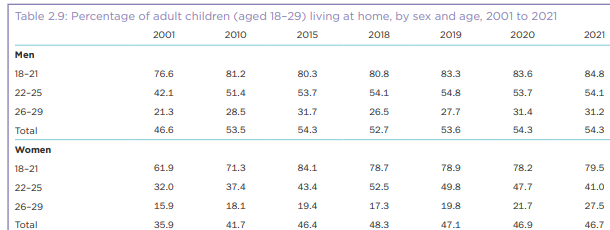
Source: HILDA 2023
As shown in the table above, just over half of young men (54%) and 47% of young women (18-29 years old) continue to live with their parents.
The report notes several factors preventing young Australians from acquiring their first foothold on the housing ladder: many young Aussies are taking longer to find their feet in the workforce, real incomes are declining, and the cost of living is rising.
“The social and economic forces that have driven an increase in the number of young adults living with their parents are still present”, says Professor Roger Wilkins, Deputy Director of the Melbourne Institute: Applied Economic & Social Research and HILDA Survey Co-Director.
“We’ve seen a rise in higher education participation, declining full-time employment opportunities for young people, a rising cost in housing, and a trend towards later marriage and family formation”.
“The traditional markers of adulthood are happening later in life now”, he says.
Statistically, the key drivers behind the shift are illustrated below.
First, Australian home values have risen far quicker than incomes since 2000:
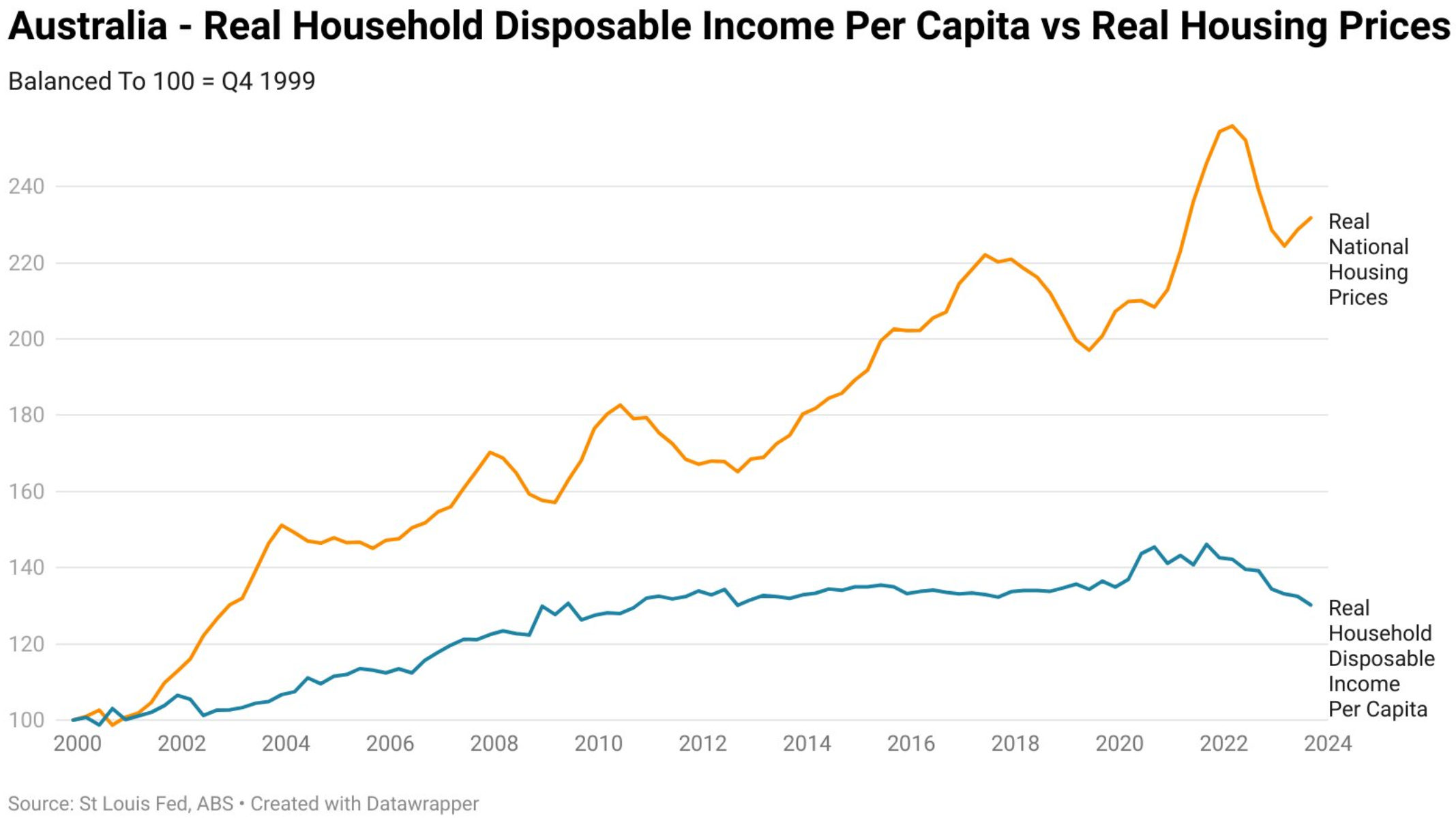
Source: Tarric Brooker
When combined with higher interest rates, PropTrack analysis shows that only 13% of Australian homes are affordable to the median buyer, the worst result in 30 years of data:
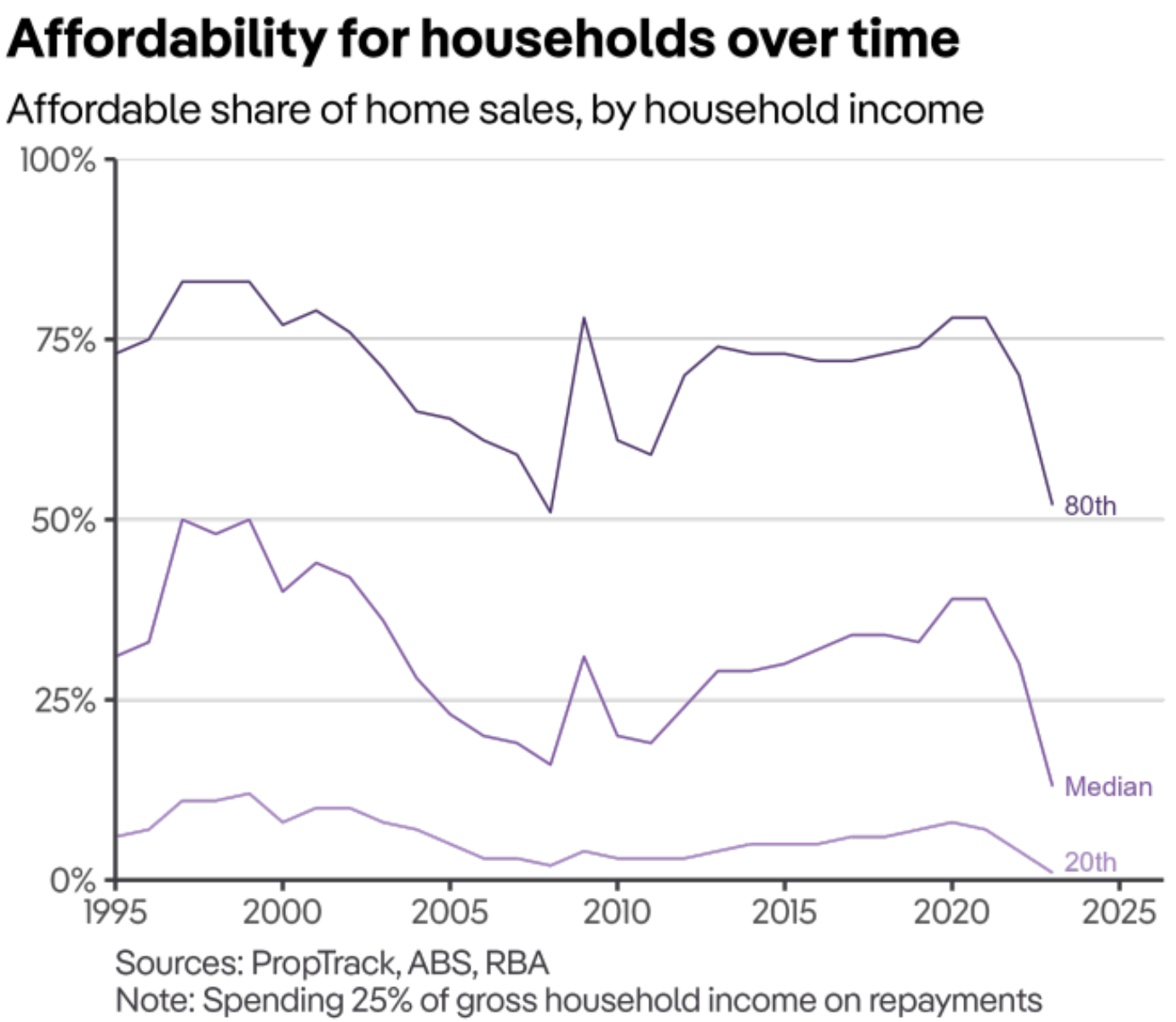
To add further insult to injury, Australians aged under 35 are earning less in real terms than they did in 2008:
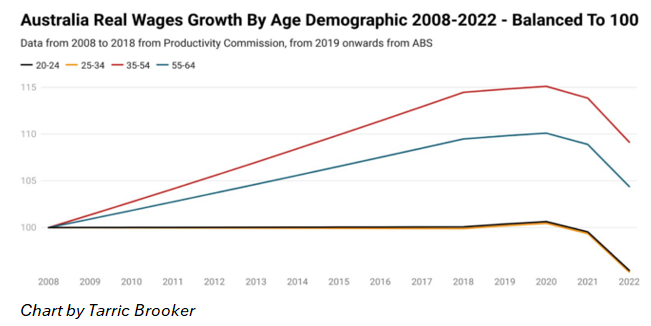
It is difficult to see how the situation will turn around given the federal government has projected endless mass immigration into Australia, which will drive up demand for housing (pushing up both prices and rents), as well as place downward pressure on younger Australians’ wages.
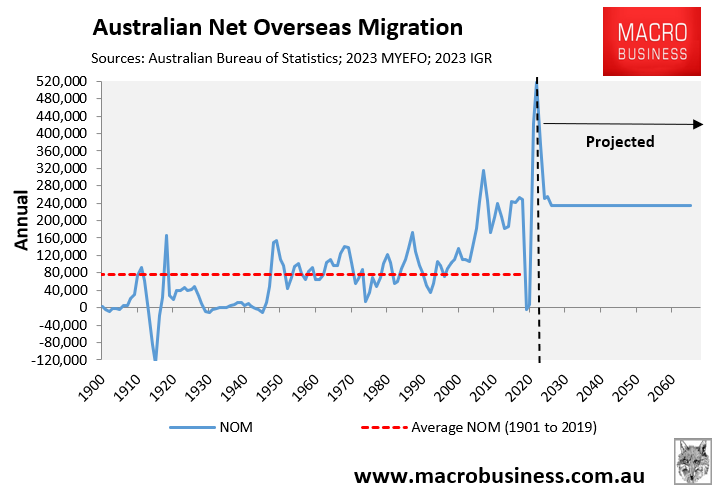
The cards are being stacked against younger Australians, who now require wealthy parents to afford a home in the major cities.

